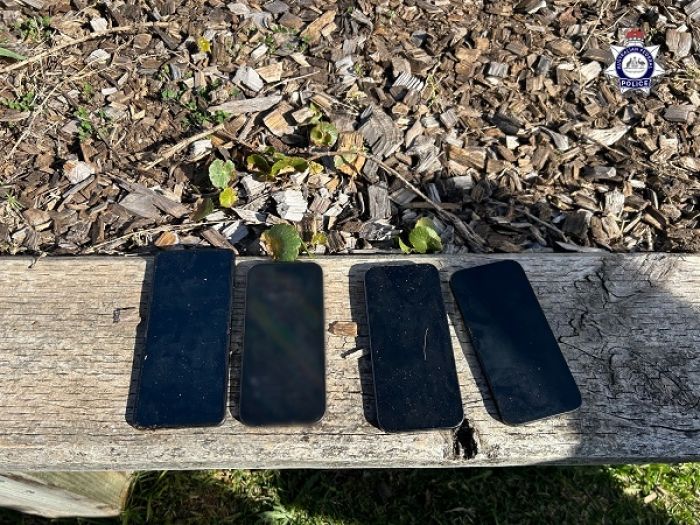Australian victims warned over rising cryptocurrency exchange impersonation scams
This is a joint media release between the Australian Federal Police, National Anti-Scam Centre, and Binance Australia
Editor's note: Scam text example image available via Hightail.
Authorities have hit send on a text and email blitz to warn Australian cryptocurrency customers about scammers impersonating a high-profile exchange.
The National Anti-Scam Centre (NASC), in partnership with the AFP-led Joint Policing Cybercrime Coordination Centre (JPC3), has today (20 March, 2025) reached out to more than 130 potential victims alerting them to the impersonation scam targeting the Binance cryptocurrency exchange.
They were identified through messages found on an end-to-end encryption platform.
In scams similar to what is seen in traditional finance, targets were allegedly contacted via SMS and encrypted messaging platforms by someone claiming to be a Binance representative who said their cryptocurrency accounts had been breached.
The messages allegedly contained fake verification codes and were often 'spoofed', meaning they appeared in a legitimate existing message thread from the well-known cryptocurrency exchange.
A support phone number was also sent, but when the targets called it, they were instructed to protect their accounts by transferring their cryptocurrency to a 'trust wallet', which was controlled by the scammer and allowed the assets to be stolen.
Under Operation Firestorm, a global operation launched in 2024 to address and disrupt offshore organised crime networks deceiving Australians through romance, cryptocurrency and investment scams, the JPC3 identified more than 130 Australian-based victims targeted by the crypto scam through collaboration with foreign law enforcement partners.
AFP Commander Cybercrime Operations Graeme Marshall said once the funds were transferred to an account controlled by scammers, they were generally quickly transferred through a network of wallets and money laundering accounts making seizure or recovery difficult.
"The AFP has worked closely with our partners at the NASC to ensure any victims in Australia targeted by these scammers were identified swiftly and given advice to help protect their cryptocurrency accounts," Commander Marshall said.
"Anyone who received an SMS or email warning from the NASC must take it very seriously.
"If you have already transferred your cryptocurrency to a so-called trust wallet, report it to your bank or digital currency exchange immediately, then to police via ReportCyber quoting the reference number AFP-068."
Australian Competition & Consumer Commission Deputy Chair Catriona Lowe said impersonation scams had become common, and it was vital that people verified all communications they received, even where they appeared to come from trusted organisations.
"Impersonation scams rely on people trusting that the text, email or phone call they get is legitimate and scammers go to significant lengths to create the appearance of legitimacy," Ms Lowe said.
"We urge all Australians to contact an organisation directly using official contact details from their website or app to verify any communication they receive."
Binance Chief Security Officer Jimmy Su said protecting their users was Binance's top priority, and education was key in the fight against scams.
"Scammers often impersonate trusted platforms — like Binance and others — by exploiting certain telecom loopholes to manipulate sender names and sender phone numbers to create urgency," Mr Su said.
"To stay safe, always verify communications using Binance Verify — our tool to confirm official Binance channels. Never share sensitive information like your seed phrase or transfer funds under pressure. If in doubt, stop and verify through official sources.
"Binance remains committed to working with law enforcement and the community to combat fraud and enhance user security."
Impersonation scams
An impersonation scam occurs when scammers pretend to be trusted businesses, government agencies, law enforcement, or even friends and family to steal money or personal information.
Warning signs
- Unsolicited contact from someone claiming to be from Binance, a well-known cryptocurrency exchange, about an 'account breach'.
- Pressure to act quickly due to suspicious activity or security concerns.
- Being asked to provide sensitive information, such as your seed phrase or account balance.
- Unusual requests to transfer money or make payments to a different account under the guise of securing your funds.
- Insisting on secrecy and not discussing the matter with family or friends, claiming the situation is sensitive.
Protect yourself
- If you receive a call, email or text claiming to be your Digital Currency Exchange (DCE) provider, use the official contact details on your provider's website to confirm the legitimacy of the request.
- Don't click on any links or download attachments from unsolicited messages.
- Be extremely wary of urgent requests asking you to act immediately.
- Keep your devices secure by ensuring your software is always up to date.
- Never provide your personal information, particularly your seed phrase.
What to do if you're a victim
- Report it to police quoting the reference number AFP-068.
- Report it to Scamwatch to help others avoid similar scams.
- Stop all communication with the scammer.
- Notify your DCE provider.
If you are concerned your identity has been compromised, contact the national identity and cyber support service, IDCARE.
Situations such as this can be upsetting. If you, or someone you know, needs help, we encourage you to contact Lifeline on 13 11 14 or Beyond Blue on 1300 224 636. They provide 24/7 support services.
About the JPC3
The JPC3 brings together Australian law enforcement and key industry and international partners to fight cybercrime and prevent harm and financial loss to the Australian community.
We are committed to equipping all Australians with the knowledge and resources to protect themselves against cybercrime.
Watch our cybercrime prevention videos and protect yourself from being a victim of cybercrime.
If there is an immediate threat to life, or risk of harm, call 000.
If you are a victim of cybercrime, report it to police using Report Cyber.
About the National Anti-Scam Centre (NASC)
The National Anti-Scam Centre (NASC) is run by the ACCC. The NASC promotes and participates in public and private sector collaboration to make Australia a harder target for scams.
The NASC runs the Scamwatch service (scamwatch.gov.au) which receives intelligence from the public and provides information about how to spot and avoid scams.





